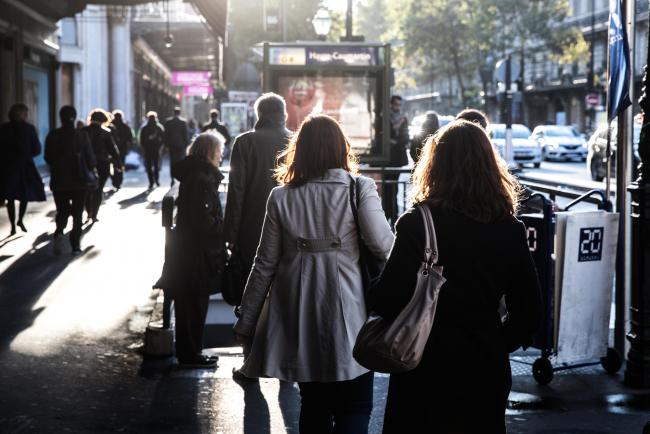(Bloomberg) -- The European Central Bank got a reminder that the improving economy doesn’t guarantee a return of inflation to its goal, as unemployment unexpectedly dropped but consumer-price growth missed estimates.
The jobless rate slid to 8.8 percent in October, the lowest in almost nine years. Yet November inflation edged up to just 1.5 percent, missing the 1.6 percent prediction in Bloomberg survey, and underlying price pressures failed to pick up at all.
The latest price data outline the dilemma facing the ECB. Even with the region’s economy set for the fastest growth in a decade and the most broad-based expansion since 1997, a sustained price recovery remains some way off. While policy makers have acknowledged that this development warrants less additional monetary support, ECB President Mario Draghi has advocated a “patient and persistent” approach to exiting the central bank’s stimulus program.
“The solid and broad-based economic recovery in the euro area is continuing,” ECB Executive Board member Peter Praet said on Thursday in Brussels. “The breadth of the expansion is notable.”
Core inflation, which excludes volatile items such as food, energy and tobacco, remained at a tepid 0.9 percent in November, falling short of the 1 percent median estimate by economists.
|
What Our Economists Say... “Euro-area headline inflation accelerated slightly in November, but the devil lies in the detail. The limited breakdown of today’s reading shows that energy prices accounted for most of the increase while core inflation was unchanged. This won’t please the ECB.”-- Maxime Sbaihi and Jamie Murray, Bloomberg Economics For more, see our Euro-Area React |
The euro traded lower after the report, and was at $1.1829 at 11:44 a.m in Frankfurt.
Despite inflation consistently undershooting expectations, policy makers have expressed confidence that economic growth and falling unemployment will eventually feed through to prices.
“All indications are that the recovery will continue for longer, and that would put pressure on wages and prices going forward,” Vitor Constancio said in an interview with Bloomberg Television on Wednesday. “It’s a gradual process, but we see it going in that direction.”
Read next: Draghi Is Right, Rich and Poor Euro Nations Getting More in Sync
Governing Council members Jens Weidmann and Klaas Knot on Wednesday called for a more a decisive acknowledgment of the strengthening of the economy.
“Evidence is mounting the economic outlook will be at least as good as previously forecast, if not even better,” Bundesbank President Weidmann said. “This development should continue for a while.”
When the ECB’s Governing Council next meets on Dec. 14, it will be faced once again with a picture of solid economic growth and subdued prices pressures. Policy makers announced in October that they will halve its current monthly pace of bond buying starting January and running until at least September.
“Absent deflation risk, a full phasing-out of net asset purchases from September 2018 onward is warranted,” Knot said in London.
(Updates with central bankers’ comments starting in fourth paragraph.)
